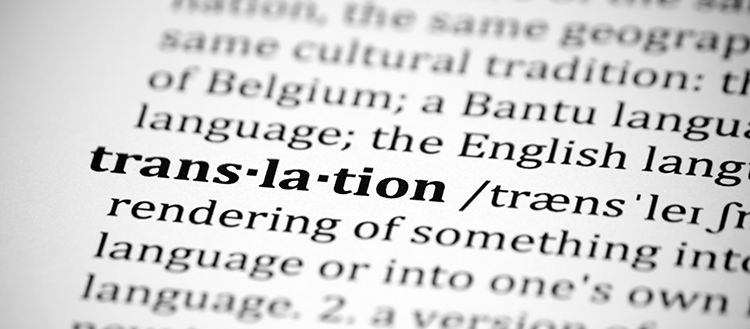News agencies facing the dangers of translation

© DR
How is a report written by a news agency in French translated into German or English? A University of Geneva (UNIGE) study has examined how news agencies translate and rewrite material, highlighting the risks inherent in the process, including the notion of cultural confinement. In their desire to avoid literal translations and facilitate the public’s understanding, journalists tend to neglect the transmission of opinions of people speaking in a foreign language, preferring familiar referents in the same language as that of the target readership. The same is true when it comes to context, where generalization prevails over nuance. The UNIGE research, entitled «Les enjeux de la traduction en agence de presse», is published by Les Presses Universitaires du Septentrion.
“During my work,” explains Lucile Davier, a researcher in UNIGE’s Faculty of Translation and Interpreting, “I noticed that journalists rejected straightforward translations, which for them were synonymous with a literal translation of information, and rightly preferred to rewrite a text based on the language it was going to be published in and the cultural context.” However, although this kind of work is essential, it is not without risks in terms of transmitting information.
Choosing between generality and familiarity
Davier investigated over 1,100 news produced by the Agence Télégraphique Suisse (ATS) and Agence France-Presse (AFP). She analysed who the main actors were, how subjects were contextualised and what arguments were developed according to the chosen language. “The research showed that the cultural references used and the way they are presented are different for each language, even though the subject is the same,” notes Davier. In fact, journalists elected to address their readers according to the culture of their language and the political and cultural contexts associated with it, which has an irreversible impact on the way information is perceived. “For instance, an AFP report written in French and designed for the international French-speaking population will present the SVP [the Swiss People’s Party] as an extreme right-wing party, whereas the same terminology would never be used by Swiss French-speaking journalists”. In this case, the role of the AFP is to make the information as general as possible so that it can be understood by readers who are not familiar with internal Swiss politics — which inevitably means that some of the nuances will be lost in translation.
In a similar way, political figures quoted by agency journalists will be well-known to the target audience, usually politicians from France for French-speaking Swiss, and from Germany for their German-speaking counterparts. “Although this way of operating may seem logical, it does restrict the points of view that are presented and any potential insight”, says Davier. “In other words, we are locked inside the cultural bubble of our own language, whereas translating the words of somebody speaking in another language could open new perspectives, helping us to compare and contrast two different modes of thought.”
Translating meaning rather than words
Only direct quotes are translated word for word by news agencies. However, when a quote is too colourful, journalists believe that they cannot translate it and prefer to remove it to avoid taking risks. Although this caution is necessary, it also suppresses voices that are not then heard outside their linguistic region. “It’s about dropping the notion of word-for-word translating, and instead concentrating on the meaning of the quote”, says the UNIGE researcher. Individual words should not be seen as the units for translation; they should be secondary to the expression, sentence or even paragraph as vectors of the logical meaning to be transmitted in the target language.
The UNIGE study highlights the important and essential equivalence work that news agencies carry out so they can transmit information effectively to different linguistic regions. But the research also points out the risks and pitfalls involved in translating, such as cultural confinement. “It’s no longer a matter of seeing translation as an operation that takes place between words but between cultures,” argues Davier in conclusion.
Contact: Lucile Davier, +41 22 379 86 72
30 Oct 2017